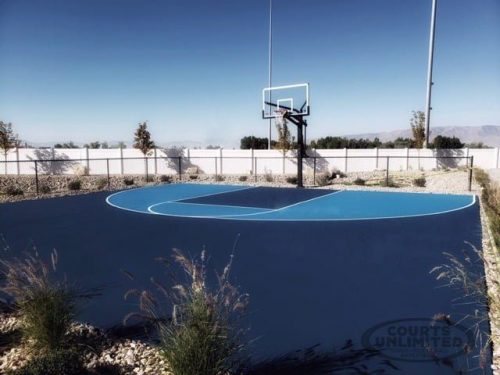 Whether your child takes to the basketball court with the gusto of Michael Jordan or the cautious excitement of someone brand new to the game, confidence is key to unlocking their full potential and ensuring they have a positive sports experience.
Whether your child takes to the basketball court with the gusto of Michael Jordan or the cautious excitement of someone brand new to the game, confidence is key to unlocking their full potential and ensuring they have a positive sports experience.
For parents and coaches, nurturing this confidence is not just about developing better athletes; it’s also about fostering the growth of resilient, self-assured individuals. Here’s how you can help your little baller believe in their skills and shine on the court.
Understanding Confidence in Sports
Confidence on the basketball court is more than just believing you can make a shot or score a goal. It’s about conviction, the belief in one’s ability to achieve a specific goal. For young athletes, this belief can often be the line between stepping up to the challenge or taking a backseat to self-doubt.
Definition and Significance
Confidence is the invisible friend that walks alongside a player, offering them the courage to take on new situations and strive for improvement. It’s the heart of mental toughness, a trait that’s crucial in transforming a good player into a great one.
Benefits of Confidence in Young Athletes
A confident young athlete is more likely to perform to the best of their ability under pressure, bounce back from setbacks, and enjoy their sport regardless of the outcome. Confidence is not about being fearless; it’s about believing you can handle whatever comes your way.
Supportive Strategies for Parents and Coaches
Instilling confidence doesn’t just happen during game time; it’s a continuous effort where every practice, interaction, and lesson plays a part. Here are several strategies to incorporate confidence-building into your child’s basketball experience.
Encouraging Positive Self-Talk
Self-talk is the constant conversation athletes have with themselves. Encourage your little baller to replace negative thoughts with positive affirmations. “I can do this,” or “I’m getting better every day,” can work wonders in increasing their self-belief.
Setting Achievable Goals
Goals give direction and purpose to training. Work with your child to set short-term, realistic goals that are within their reach. Achieving these goals will give them tangible evidence of their progress and a boost in confidence.
Providing Constructive Feedback
Feedback should be specific, timely, and focused on areas the player can improve. Avoid criticism that doesn’t offer a solution, as it can erode confidence. Instead, focus on what they’re doing right, along with areas for growth.
Creating a Supportive Environment
The environment at home and on the court should be one of support, not pressure. Show faith in their abilities and make sure they know it’s okay to make mistakes. In Utah, you can build a basketball court in your backyard or driveway for extra practice and fun, creating a safe space to learn and grow. Also, make sure to recognize and celebrate their progress, no matter how small.
Building Resilience and Handling Setbacks
Basketball, like life, is full of ups and downs. Teaching children how to handle setbacks with grace and determination is as important as any layup or jump shot.
Teaching Coping Skills
Provide your child with the tools to handle frustrations, such as taking deep breaths, visualizing success, or having a post-game debrief. These tools will help them manage their emotions in the heat of competition.
Emphasizing Growth Mindset
Help your little baller understand that abilities can be developed. By fostering a growth mindset, where effort leads to improvement, you shift the focus from perfection to progress.
Dealing with Failure Constructively
Failure is a part of any sport. It is not the opposite of success but a stepping stone to it. When your child experiences failure, help them see it as an opportunity to learn rather than a reflection of their worth.
Fostering a Positive Sports Experience
Ultimately, the goal is to keep sports fun and maintain a healthy balance between enjoyment and competition. Confidence grows naturally in an environment where a child feels good about themselves and their place in their team.
Balancing Competition and Fun
Competition is a part of sports, but it shouldn’t overshadow the joy of playing. Ensure that there’s a balance between taking the game seriously and having fun so that the pressure doesn’t stifle their enjoyment.
Emphasizing Effort Over Outcome
Emphasize the process of playing and the effort put in, rather than the outcome of the game. This shift in focus encourages hard work and perseverance, both of which are pillars of confidence.
Celebrating Achievements, Big or Small
Every achievement, from learning a new skill to scoring a buzzer-beater, deserves recognition. Celebrate these moments to highlight your child’s progress and to reinforce their belief in their capabilities.
Conclusion
Building confidence in young athletes is a multifaceted process that involves strategic support from parents and coaches. By understanding the nature of confidence and employing the right techniques, you can help your little baller develop the self-assurance they need to shine on the basketball court and in life. Remember, the smallest gestures and words of encouragement can have the biggest impact. Empower these young players, and the courts will light up with their potential.






